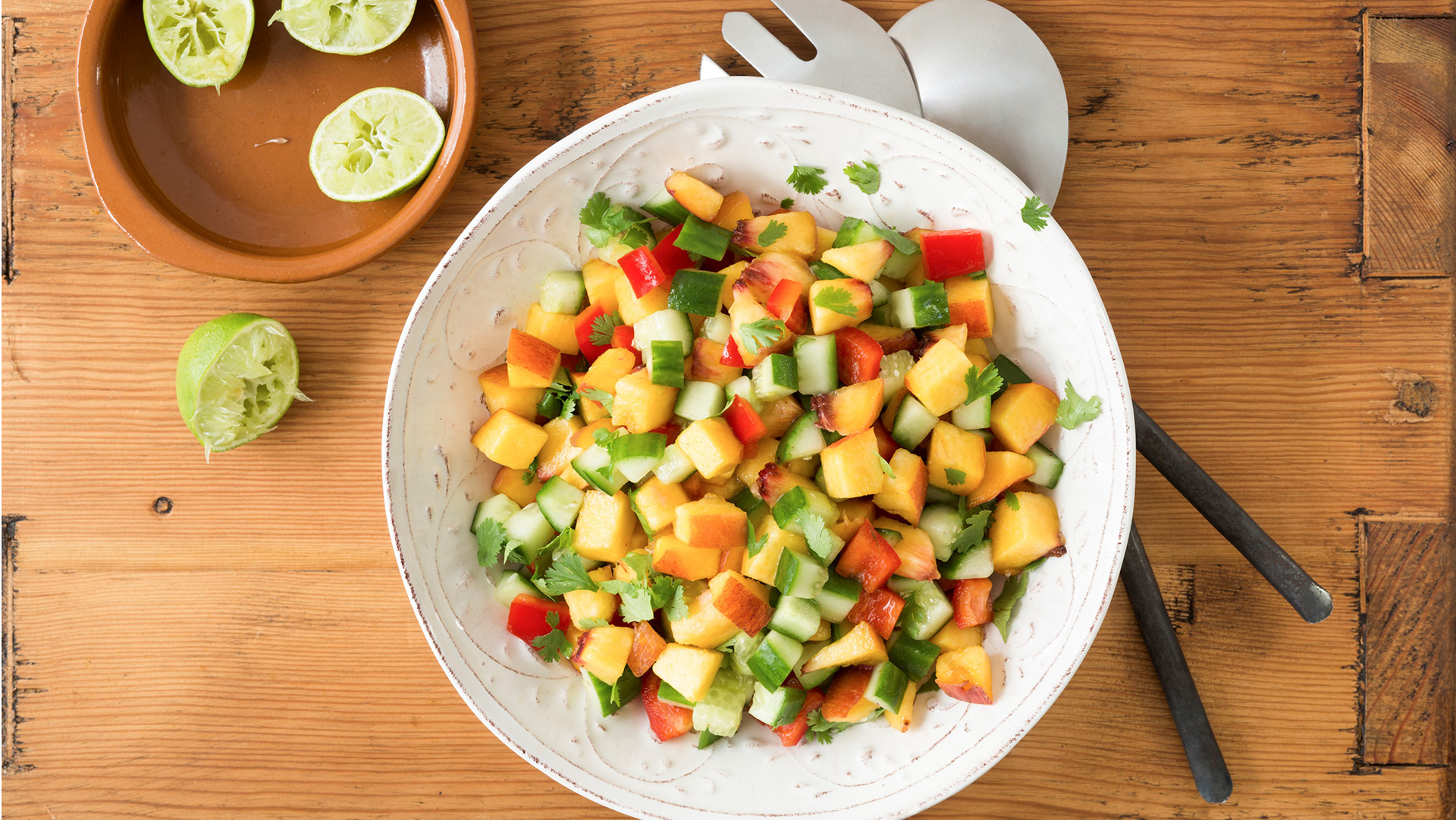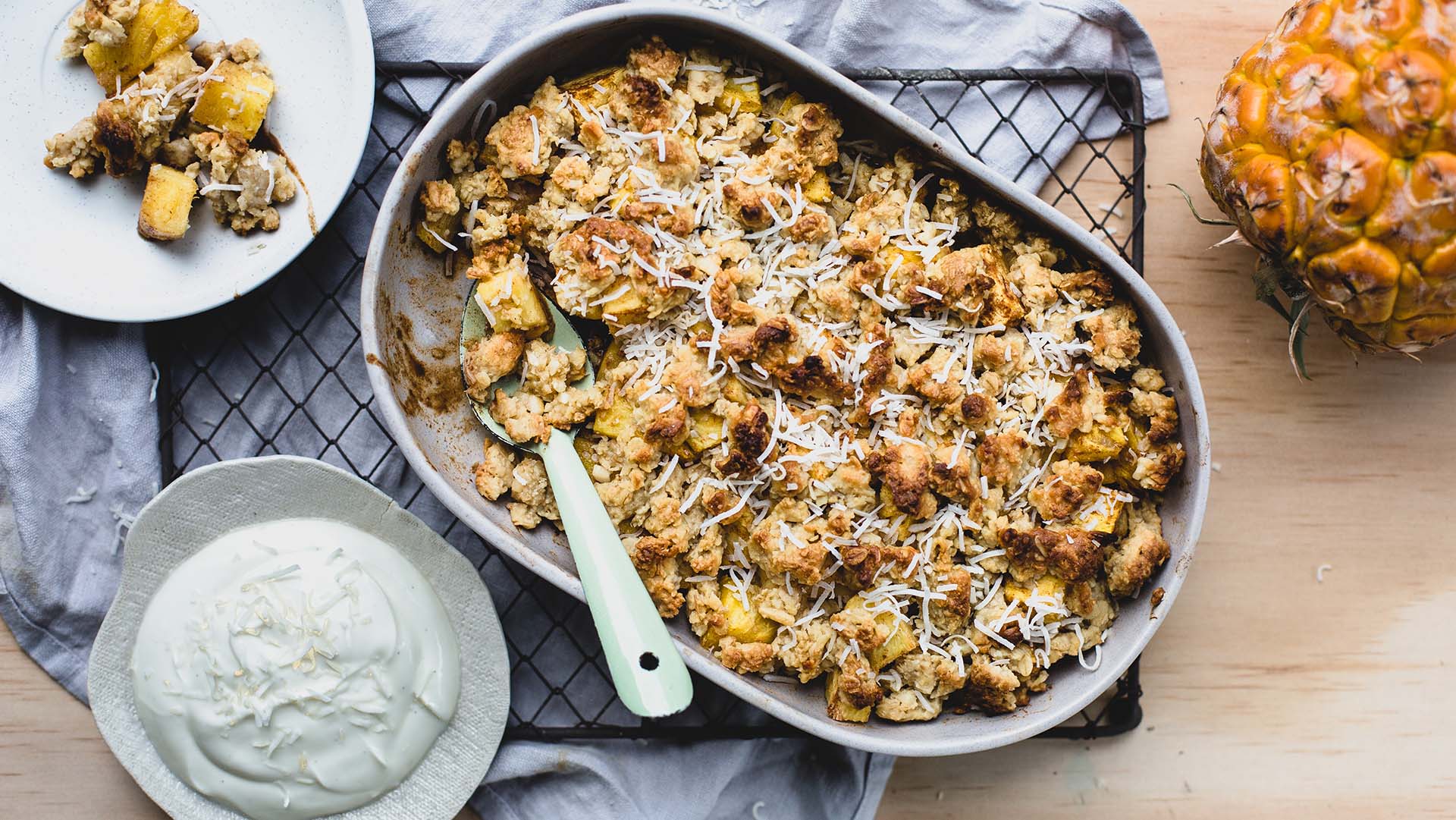-
“You’re riffing off patterns in nature, things that have worked for millions of years, and trying to make them work in a human context,” says Kirsten Bradley as she walks up a dirt path on an old dairy property south of Sydney. “It’s about designing systems and thinking about the big picture, rather than automatically doing what some dude came up with in 1940.”
She’s talking about permaculture, a seemingly head-scratching concept that can be as simple, or as in depth, as you want to make it. On a small scale, it might be planting your herbs by the back door, because you use them three times a day, or keeping chooks near a vegie patch to easily throw them scraps. It’s about taking a more thoughtful, kinder approach to your natural surrounds, be it on a large farm or in a small apartment.
Instead of rushing to Bunnings on a spring morn to grab the first flowering plant, you’d pause. “Start by thinking: What actually grows? What’s realistic?” Bradley says. “What’s my water supply like? What am I prepared to spend? You come into it thinking about the whole and reverse-engineering it in a way.”
As one-half of Milkwood Permaculture, Bradley has been discussing this stuff for the past seven years with her partner Nick Ritar. Not just in back gardens, but on a huge working farm in Mudgee, New South Wales, which the couple left Melbourne to run in 2007. “At the start we had no idea what we were getting ourselves into,” Bradley admits. They eventually created the thriving Milkwood Farm, where they held workshops on everything from sustainable farming and natural building to mushroom cultivation and backyard vegies. It all started with some land, a beat-up HiLux and a couple of dams.
Before they skipped town, Bradley and Ritar were practising artists who dabbled in events. Bradley produced Melbourne’s Next Wave Festival and Ritar was a “geek artist”, part of the founding crew of Newcastle’s This Is Not Art festival. Not the obvious resume for two rural homesteaders, but there was a connection. “By early 2000 our art was environmentally focused,”Ritar explains. “A lot of ephemeral installation and projections, but always a reference to the relationship between humans and nature. Permaculture was a framework to take practical and positive action and do something we really believed in at the same time.”
“WE WERE DIRT POOR AND LIVING IN A POP-TOP CARAVAN ABOUT THE SIZE OF A TABLE, BUT WE HAD ACCESS TO LAND.”
A short permaculture course run by designer and teacher Geoff Lawton got Bradley hooked. “I came back thinking, ‘This is what we’re trying to do with our art!’” she says. “It was functional systems design smushed with nature, but it had practical outcomes rather than art-based outcomes. Permaculture was what we were trying to riff off anyway.”
Ritar’s parents had a piece of land, so the couple quickly made the move; then reality hit. “It took us ages to figure things out,” Ritar says. “We were dirt poor and living in a pop-top caravan about the size of a table, but we had access to land.” As they came to know the area and the local community, the couple started to work the land. The property was their testing ground, and the more they experimented the more gaps they saw. “We were curious about sustainable farming, then realised there wasn’t any training for farmers in regenerative agriculture,” Bradley says. “We wanted to learn about it, so we invited expert teachers to run workshops in our woolshed. It wasn’t very planned.”
Most new businesses seem to require infinite energy and a lot of luck; it was no different for Milkwood. Around the same time that Bradley and Ritar kicked off the workshops, people were flicking on films like Food, Inc and Fast Food Nation. Conversations about organics, sustainability and eating local were filtering into the mainstream, and Milkwood was where people came to learn.
On the property, Bradley and Ritar built a small two-room house and welcomed their son, Ashar, into the world. They created a market garden, constructed a straw-bale roundhouse and an earth-bag dome. When the business started to earn an income, they borrowed money and bought a block of land down the road.
People came from all over the country to camp at the farm and skill-up. “It was like running a very long, small festival,” Bradley says. “Knowing how to deal with people, logistics and documentation were all skills we brought from Melbourne,” adds Ritar, who also knew how to build a website, which helped Milkwood get word out. Students cooked and dined together while studying organic gardening and systems design.
Then everything changed. The problem with running a festival on your property? You constantly live in a festival. It’s rewarding, but intense. Mudgee was also a five-hour drive from Sydney, where Bradley and Ritar wanted to do more work. So in mid-2014 they moved again, to Kiama Downs, two hours south of the harbour city. “Someone was talking about Rayburn wood stoves the other day and I got a pang,” Bradley admits. But there hasn’t been much time to mourn. Since moving, Bradley and Ritar have been building a new farm, a stone’s throw from Sydney’s CBD.
On a rooftop courtyard, Milkwood’s team of makers and doers have transformed a slab of concrete into a food production system: putting veg beds, aquaponics, mushroom logs, worm farms, native beehives and vertical gardens in the heart of a city where they continue to run Milkwood classes. “This hands-on stuff is the gateway drug to the greater permaculture idea,” Ritar says. “Teach someone how to grow tomatoes or build a straw house and they get really excited, they can easily translate that into direct value for money. The loftier stuff, the ethics and principles of permaculture, come later.”
Classes are open to anyone. Bradley and Ritar have teamed up with some of their favourite teachers, including market gardener Michael Hewins and professional beekeeper Tim Malfroy. The garden’s flexible design means it can cater for small groups or larger functions and – as most classes are taught over one or two days – Bradley and Ritar hope to plug city dwellers into a kinder way of thinking about their natural world. Permaculture is always possible – even if all you’ve got to work with is a concrete balcony or a few pots.
Milkwood
-
Is sharing a meal the secret ingredient to a happier life?
Why social connection may be the most important ingredient on your plate.
-
Chicken soup with parmesan, rice, peas and lemon recipe
Nourishing chicken soup
-
The best immunity-boosting foods
Key nutrients to focus on that could help to boost your immunity, and the how to get them.
-
Comforting chicken noodle soup
Packed with anti-inflammatory ingredients including leek, garlic and ginger, this chicken noodle soup is hearty, full of goodness and great for any night of the week.
-
Peach salsa recipe
Zesty and unusual peach salsa recipe
-
Pineapple gingerbread crumble recipe
A summer riff on a winter classic.
Subscribe to receive the best from Live Better every week. Healthy recipes, exercise tips and activities, offers and promotions – everything to help you eat, move and feel better.
By clicking sign up I understand and agree to Medibank's privacy policy






